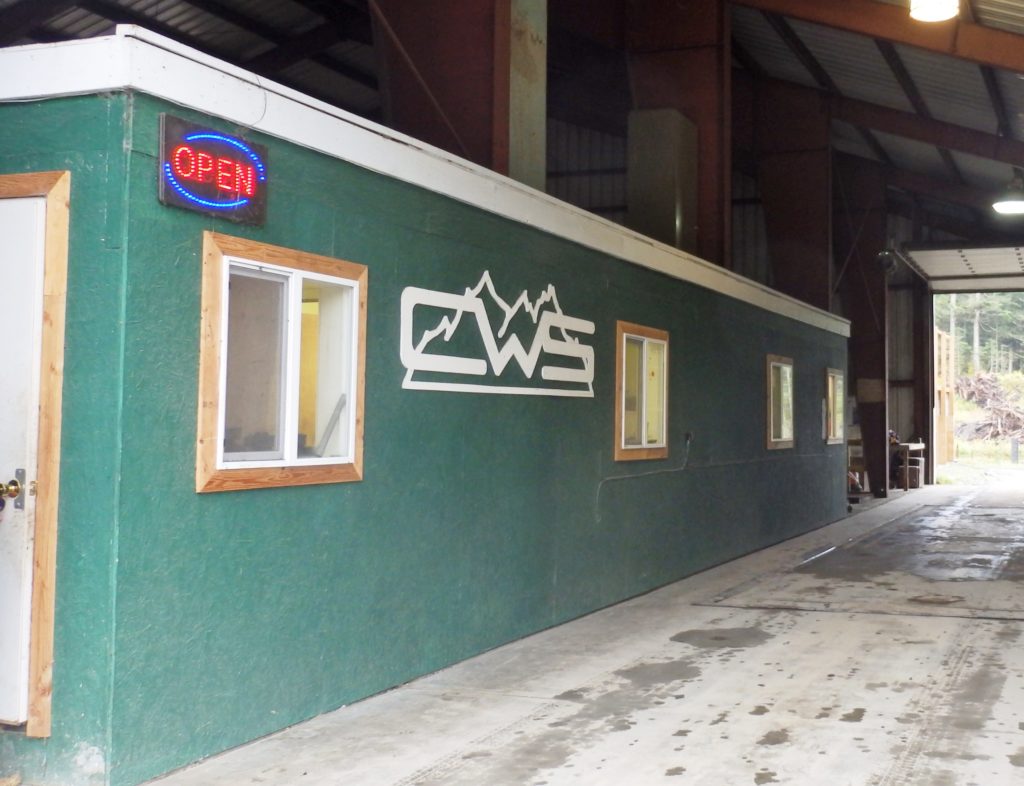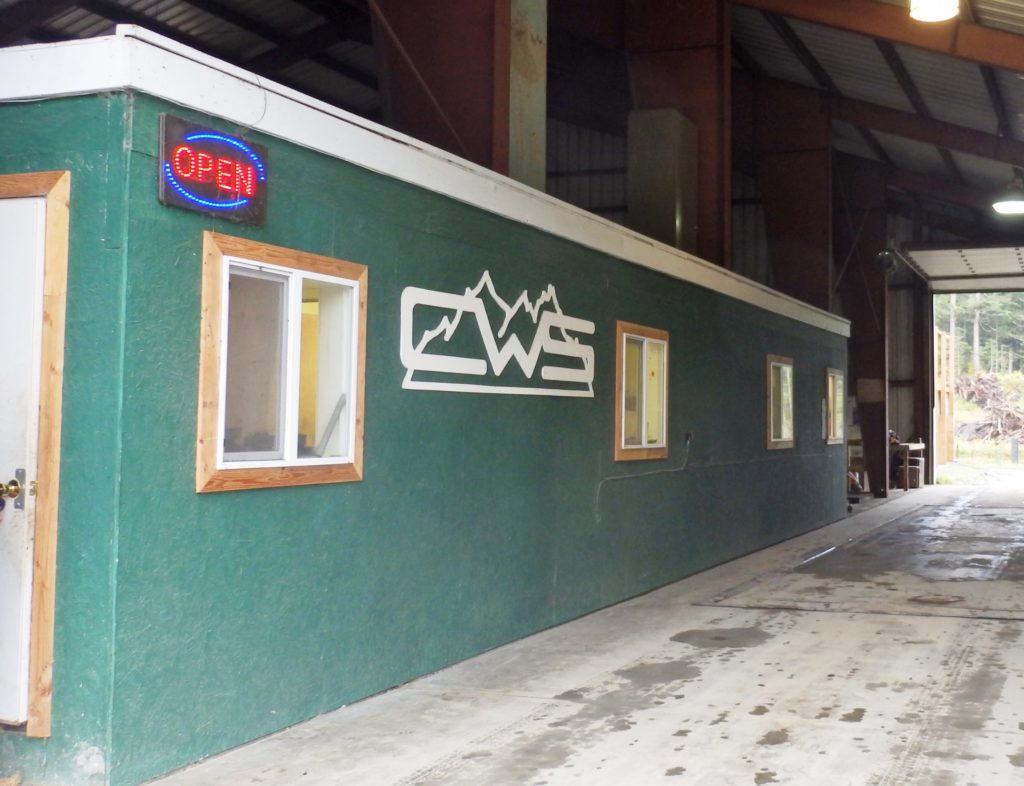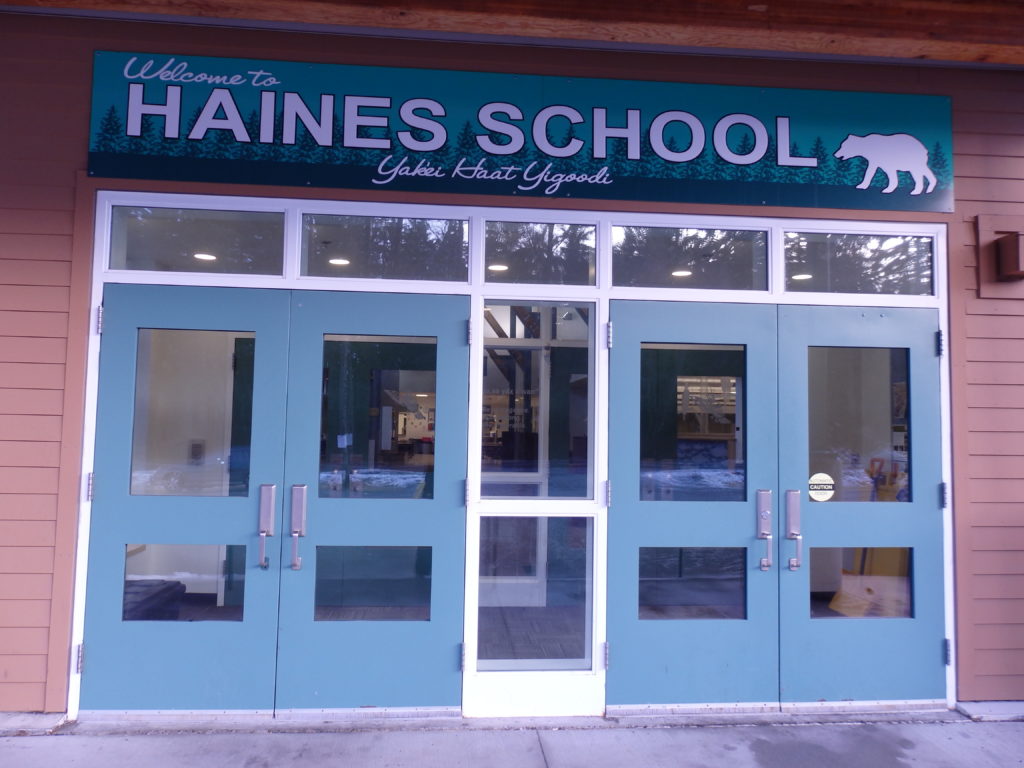
Community Waste Solutions is the only licensed trash disposal business in Haines. (Emily Files)
In many communities, municipalities take care of trash collection. But in Haines, each citizen has to deal with disposal of their own refuse. For some, that motivates good behavior like recycling and composting. For others, it leads to bad behavior, like dumping trash in the woods or water. Whether the municipality should step in is a question that’s come up periodically over the years. Now, the borough plans to form a working group to delve into the issue again.
Here’s how it works now. To properly get rid of solid waste, many Haines residents load trash into their cars and drive it about a mile out of town to the privately-run Community Waste Solutions.
“The customers come in through the front scale. They’ll come up and they’ll speak with [a representative] at the window and she’ll take their [trash’s] weight,” said CWS general manager Sally Garton. “If it’s household garbage it’s dropped off here in dumpster containers. Recycling is put into a recycling bag.”
Until recently, there was one other privately-owned trash disposal business. But Acme Transfer recently sold their permit to CWS. Now, this is the only trash game in town. Although there is another recycling option run by a nonprofit. The consolidation of trash business might open an opportunity for the Haines Borough.
“I’m not used to living in a town that doesn’t have a solid waste plan,” said Borough Assembly member Margaret Friedenauer. “I’ve never lived somewhere where it’s not a utility and I haven’t paid for it in my taxes or in fees. And I’m surprised. Is it a problem? That’s what I’m trying to figure it out.”
The assembly’s commerce committee resurrected the trash question recently, following the consolidation of waste permits. Garton, from CWS, responded to Friedenauer’s question, saying there is definitely a problem.
“[Recently] we were contacted with a property that had been storing garbage for generations,” Garton said. “We’re talking 120,000 pounds.”
There have also been reports of people dumping their trash along rivers or in the woods. If the borough were to contract with CWS to provide something like road-side trash pickup, it might stop some of that bad behavior. The waste service could be paid for by fees or taxes.
But not everyone is on board with that idea. People who minimize their waste by composting, recycling or burning are resistant to the possibility of paying a fee or tax that might be significantly more than they currently shell out for trash disposal.
Assembly member Tresham Gregg said he would be reluctant to levy a flat fee.
“If you’re knocking on everybody $40 a month and they don’t want that, it creates resentment,” he said. “It creates more illegal dumping than it might solve.”
But Friedenauer argued that people are charged the same amount for other utilities.
“I think it creates a better sense of public safety and health and welfare if we’re able to provide a service to everyone regardless if they afford it or not, and regardless of whether they throw away one or 10 bags [of trash] a month,” Friedenauer said. “Because it keeps the community healthy.”
The committee decided to form a working group to continue the trash talk. Representatives from CWS and the nonprofit Haines Friends of Recycling plan to participate.
The group will explore whether borough-wide solid waste service is feasible at this time or if the idea should be put on the back burner once again.









